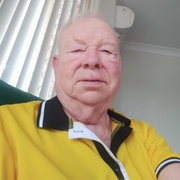
Ray: longest-surviving quadruple bypass patient
A milestone of resilience
Ray Hildridge's life is defined by a milestone reflecting his resilience in overcoming adversity.
According to an online entry from the Guinness World Records, on July 11, 2025, the longest-surviving quadruple bypass patient in Australia will have surpassed the previous world record of 42 years and 284 days, after his lifesaving operation.
The bypass surgery that changed everything
In 1982, at 34, the veteran of the Vietnam War and former soccer referee was operated on by renowned heart surgeon Victor Chang.

When I had the quadruple bypass it was only being done at St Vincent’s Hospital in Sydney, and I was the youngest patient there. I was still the youngest patient 10 years later.
Ray Hildridge
Heart surgery survivor
Overcoming challenges after surgery
“I went back to refereeing and I felt great. I thought, ‘I’m a new boy.’ So, I took up smoking again.”
It was a habit he picked up as a soldier during the war and it became a serious health burden. Eventually, he would permanently quit, though the stress of flying medivac missions out of Vietnam, where he was in constant contact with severely injured compatriots, also took its toll.
More heart surgeries and ongoing care
In 1995 he would undergo coronary artery bypass graft (CABG) surgery.
“It was a new idea about ‘piggybacking’, by using previous other grafts. In my case it was a triple bypass,” he said.
Ray would have a similar operation in 1999. By 2022 he would have a further two blocked arteries.
The importance of support and staying active
While he does need a fourth bypass operation, he credits his wife, Marilyn, and her devoted care for helping him stay alive through the decades. The legendary Victor Chang shares a fair amount of credit too.
Difficult as it can be, Ray still tries to walk every day.

I’ve lived 42 years with this, so I must have been doing something right!
Ray Hildridge
Heart surgery survivor
You might also be interested...

Heart bypass surgery
Coronary bypass surgery is a common procedure that can dramatically improve the health of your heart.

Smoking and your heart
Smoking affects the vessels that supply blood to your heart and other parts of your body. It reduces the amount of oxygen in your blood and damages blood vessel walls.

Seven surprising symptoms of heart disease
You’re probably familiar with some of the more ‘classic’ symptoms of heart disease. Chest pain (angina) which might feel like an uncomfortable pressure or heaviness. Palpitations or sensation of a racing heart. Feeling short of breath or having difficulty breathing.
Last updated20 August 2025